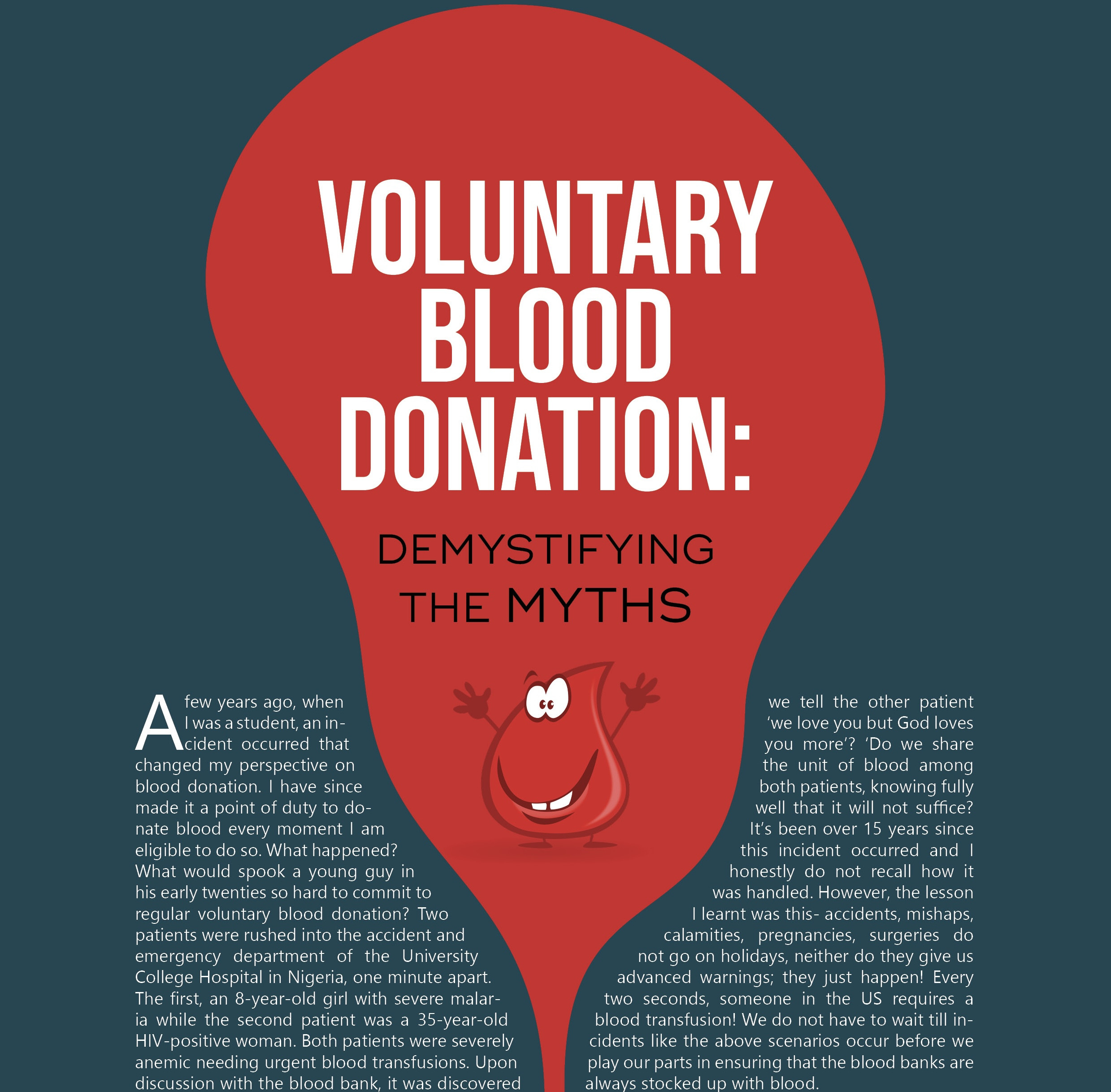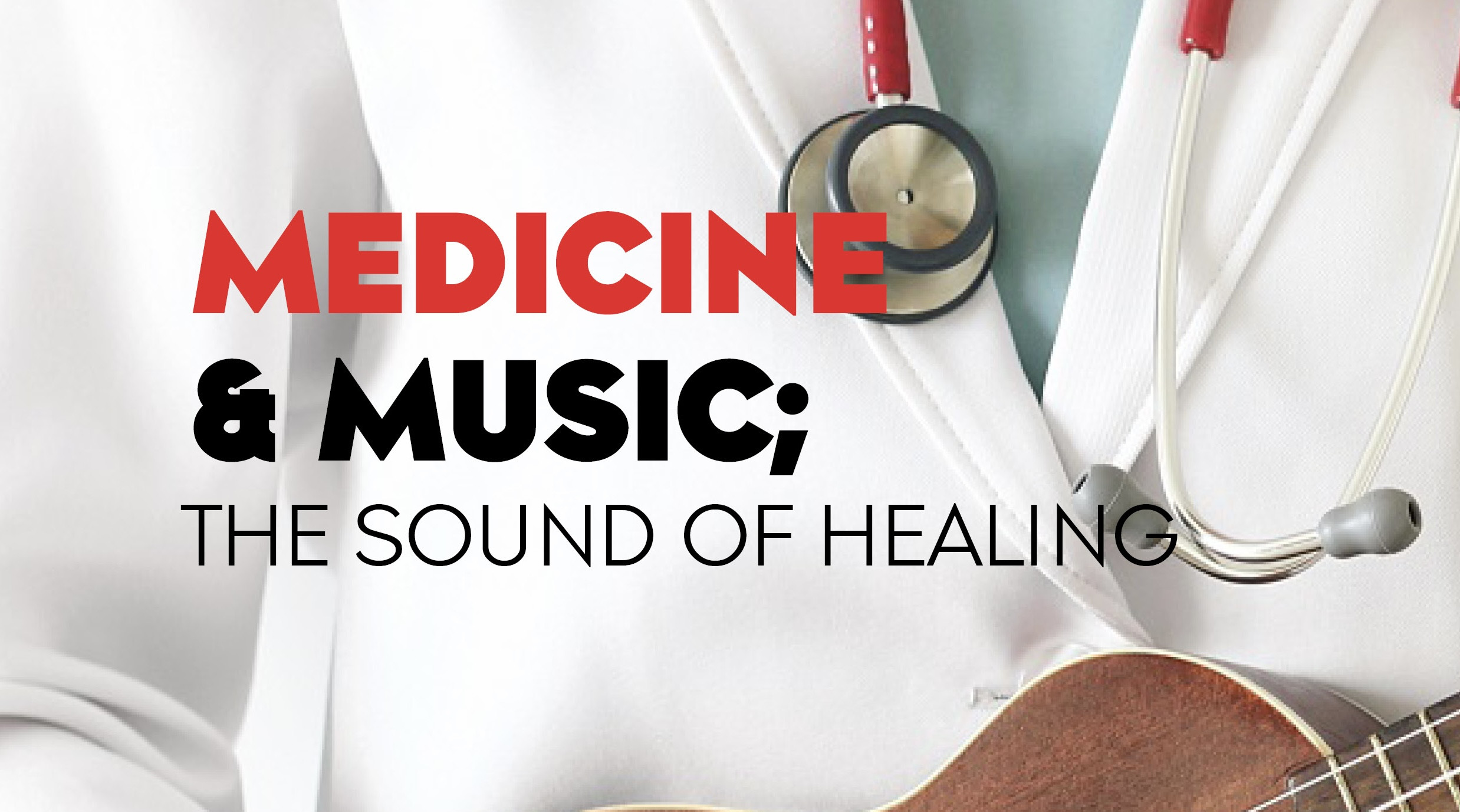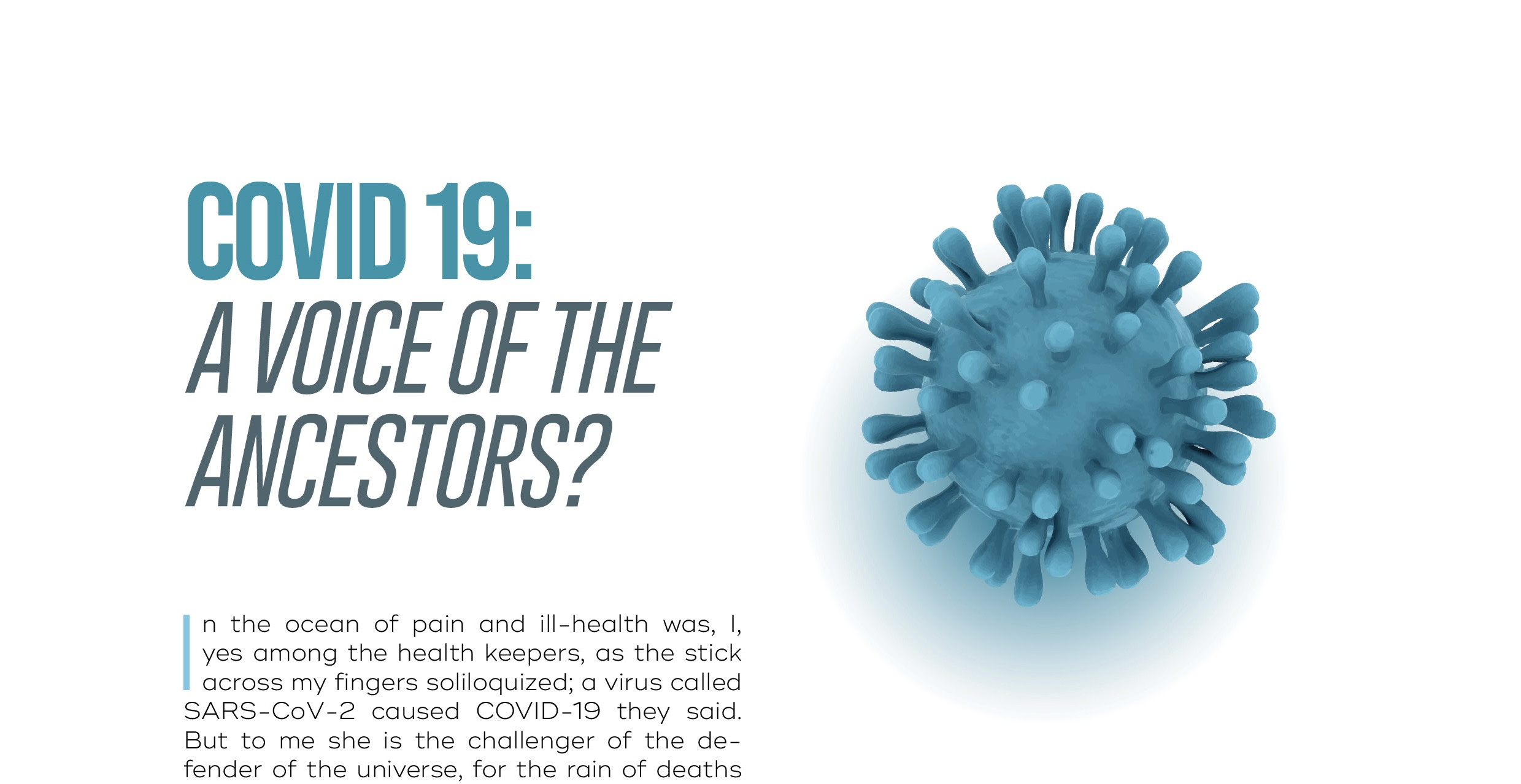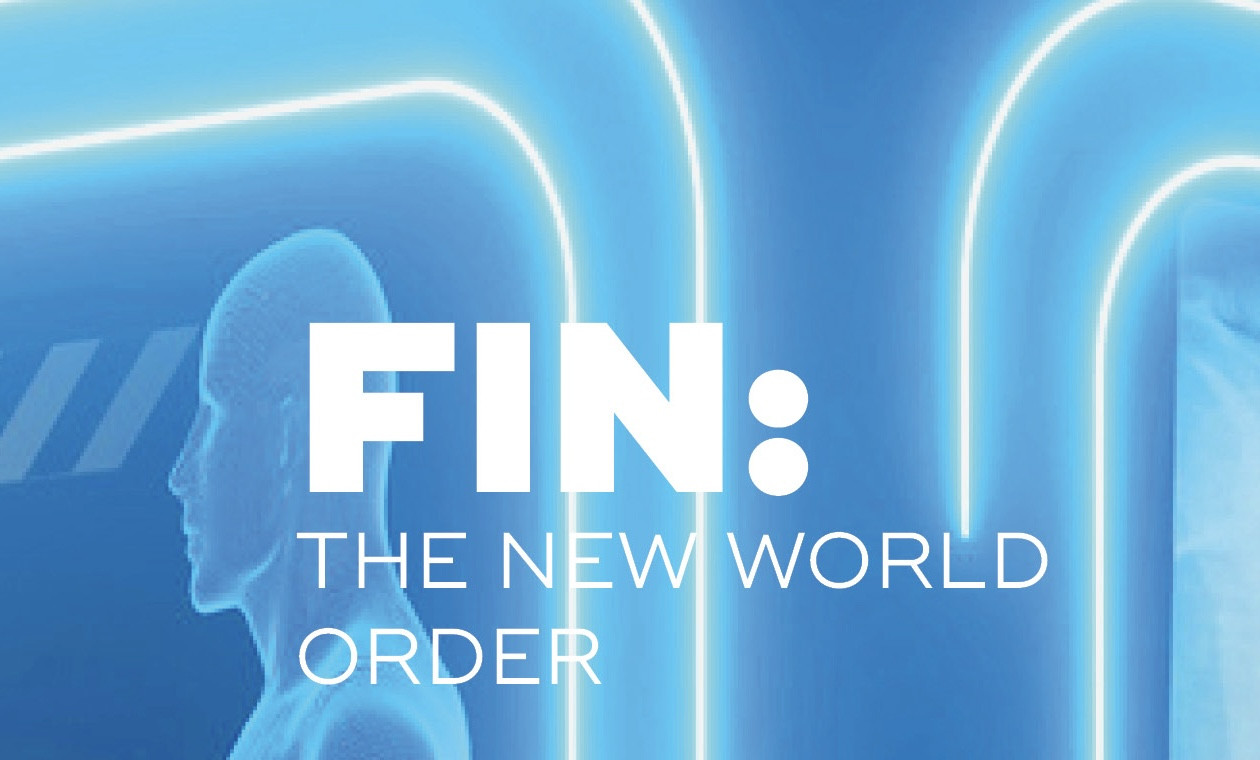Notes, harmony, riffs and runs; the nuances and dynamics of music is not only known and used for pleasurable and euphoric
purposes but therapeutic ones too. The unde- niable relationship between music and medicine has been since the existence of time. Let me tell you a story even older than the greatest com- poser; Ludwig Van Beethoven (1770-1827). This is the story of a king, and no, not the king of jazz; Paul Whiteman (1890-1967) but the Hebrew king of the would-be Jews many years ago. This was a great man, rich, influential as would any other king, the history books described him as handsome as he was tall and yes, he was taller than everyone in the room but in the midst of all these wonderful and enviable bodily character- istics came one problem, he became sick. May- be due to the burden and stress of leading the most stubborn and difficult creation in the book of history, yes, I mean humans, maybe he was genetically predisposed, call it an illness, sick- ness, ailment, whatever you may, one thing was sure he needed an intervention.
Our famous king had an illness, some records say he was possessed by an evil spirit but from my perspective, his constant sadness, obsession and worry that his rule would come to an inev- itable end and his successor was much better than him put him in a psychopathological state. The only therapy that brought him calmness and relief was the sound of music emanating from a harp coupled with the skillful display from the divinely talented fingers of his would-be suc- cessor. The therapeutic effects of music in the world of medicine should not be underestimated even in the most critical of patients. I have heard of stories where quadriplegics move in response to these melodious sounds, where chronic pain
disappears even just for a moment in response to beautifully arranged notes. Music was used to ease stress, promote sleep, and soothe pain in ancient Greece. Music does not only soothe pain but calm emotions, show therapeutic love, provide an escape without adverse effects, ap- pease and appeal to patients, convey informa- tion in the most interesting ways, stimulate fetal movement, reignite lost or forgotten memories in the elderly, arouse and set in the mood sex- ually, build therapeutic relationships, stimulates and increases neuronal interconnection. British neurologist Oliver Sacks (1933-2015) said “The power of music and the plasticity of the brain go together very strikingly, especially in young people.” Most of all, music provides healing ei- ther physically or psychologically. Africans used singing and chanting as part of their healing rit- uals, the church and various other religions use songs, hymns, chants, incantations to elicit di- vine healing.
Now, I would like to bore you with some of the re- searched effects of music on human physiology;
EFFECTS ON THE CARDIOVASCULAR SYSTEM;
Several hospitals in the world found out that patients with cardiovascular diseases or history of cardiac surgeries responded to peaceful and joyful music with a drop in blood pressure, heart rate and increase in blood flow through the ar- teries. Music therapy is used in patients with recent myocardial infarction, angina, claudica- tion, during cardiac surgical procedures, it does not only help the patient but could also calm the surgeon performing the procedure. I have also always wondered how our heart beats on differ-
ent notes and keys, how amazing it is that we could diagnose a problem with the heart just by listening for an additional note or a different key or even a disruption in rhythm.
effects on the neurologic system;
I could go on and on with details of how music is perceived as sound waves and vibrations along the bones of the middle ear, then the stapes, then the cochlea and the tiny hair cells which sends those signals to the auditory nerve and lastly the auditory cortex in the temporal lobe but a more fascinating discovery is on what ar- eas of the brain respond to different “dunamikos of music.” MRI and PET scan studies showed that special networks in parts of the brain inter- pret and decode the properties and differenc- es in music. A part of the right temporal lobe is responsible for decoding pitch and melody (a sequence of pitches over time), chords (combi- nation of several pitches or notes at the same time). Another center is responsible for timbre (quality of notes depicting different instruments playing the same note), the cerebellum appre- ciates rhythm and the frontal lobes decodes the emotional component of music. The reward center of the brain also lights up like fireworks when listening to powerful music simulating the effect of chocolate or alcohol on the brain, some feel this as “goosebumps” or “spine-tingling.” Have you ever heard of the “Mozart Effect?”
Research has shown that listening and paying attention to music especially that of Mozart (1756-1791), improves spatial reasoning, the in- telligence quotient and memory. Have you ever wondered why people with musical knowledge,
and those who can play different instruments seem sharp, possessing superior language skills, memory and attention? Speculation was that the right half of the brain decodes musical func- tions, it’s also responsible for higher brain func- tions and using that part more increases neu- ronal firing and organization. All this knowledge and research are applied in the care of patients with dementia, Alzheimer’s and various other neurological diseases.
Let me tell you another story I read about. An elderly man had a massive stroke that deprived him of his ability to speak. The doctor asked him to repeat the phrase: “Happy birthday to you.” The man struggled and couldn’t. She then asks him to sing the song as she initiates it and sings it a few times. She goes silent to let him sing it alone and he sings it as clearly as anyone cele- brating their birthday. The doctor then asks him, again, to speak the phrase. Without any prob- lem, he repeats, “Happy birthday to you.”
“Music is the medicine of the mind” said John A. Logan (1826-1886). “Music is indeed the medi- ator between the spiritual and the sensual life” said the greatest composer. I say “the art of medicine is not complete without the sound of healing.” I could go on about the effects of mu- sic on human physiology but one thing I bet we can agree on is music has an astute and pow- erful therapeutic effect on every living thing that should not be underemphasized.
I am Enoch Adewara, a lover of medicine, lover of music, lover of the God of both.
- Enoch ADEWARA

VOLUNTARY BLOOD DONATION: DEMYSTIFYING THE MYTHs
<p style="text-align: justify;">A few...





Leave a Comment